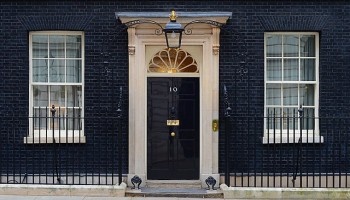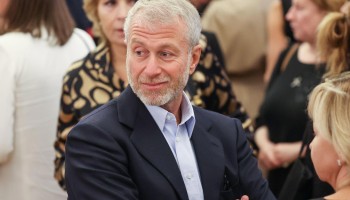A spokesperson for the NCA said that the Combating Kleptocracy Cell (CKC) was formed in part by the surge in money laundering activity from Russia, Ukraine, and Belarus ever since Russian president Vladimir Putin relaunched his invasion on Ukraine in February.
“The volumes of suspicious activity reports and defenses against money laundering have gone through the roof since the invasion of Ukraine,” the spokesperson said and noted that there has likewise been a surge in smuggling, illicit finance, and child sex trafficking activity in that region.
Specifically, the CKC will target corrupt elites holding their assets in the U.K., including individuals closely linked to Putin and his authoritarian regime who have thus far managed to evade sanctions or hide their assets from authorities.
“We’ve now been given the powers ... and the green light to go after some of these things,” the spokesperson said. “So we are obviously pushing forward as fast as we can.”
The U.K. has faced criticism for its perceived soft touch against Russian oligarchs and kleptocrats—especially when compared to the recent funding the U.S. has dedicated towards fighting corruption—resulting in the country’s capital earning the unflattering nickname ‘Londongrad’.
“The real bit for me is that they [the U.S.] have had the Office of Foreign Assets Control (OFAC) for years,” he said, while noting that the U.K.'s Office of Financial Sanctions Implementation (OFSI) is only now just getting off the ground.
He also estimated that the U.S. outspends the U.K. three to one in terms of officers, whose KleptoCapture task force has made great strides in seizing billions in assets belonging to those who have enabled Putin’s war — assets which include several private jets and luxury yachts, each worth hundreds of millions of dollars.
That is not to say that British authorities haven’t managed to make life difficult for Russian oligarchs and kleptocrats either. Back in April, the Jersey government announced that it had frozen US$7 billion from former-Chelsea FC owner Roman Abramovich; the following day, the U.K. stated that it had frozen an additional $13 billion from two of Abramovich’s associates.
How have Russian kleptocrats managed to launder their ill-gotten gains through the UK?
The NCA spokesperson said that they’re investigating finances moved by ‘enablers’ through companies, real estate agencies, and lawyers, to name a few. He also noted how oligarchs have used their family to move large quantities of money for them since the invasion.
“We’ve arrested a number of enablers across the regulated sector who support the transactions of the corrupt elites,” he said. “Many of these elites have used so many different enablers to make themselves comfortable in our country, from private schools to estate agents to auction houses to solicitors, you name it, they’ve used it.”
The CKC’s focus on taking down enablers of money laundering draws parallels to the ENABLERS Act passed by the U.S. last month, which is intended to close existing loopholes used by kleptocrats to launder their ill-gotten gains through the United States.
Despite the fact that the unit’s conception stemmed from the invasion of Ukraine, the spokesperson highlighted that “the CKC is not specifically a ‘Russian’ unit,” but rather a tool to target corrupt elites everywhere.
All states which have allowed corruption to siphon illegal money into the U.K. are fair game, he said, while emphasizing that the NCA’s efforts have already started to push back on the ‘Londongrad’ moniker.
“As a result of our work in this space, we’ve already seen some corrupt Russian elites divesting of their U.K. assets,” the spokesperson said. “Given the number of enablers that we started to target or pick off, clearly some people have decided that the U.K. is no longer for them.”






